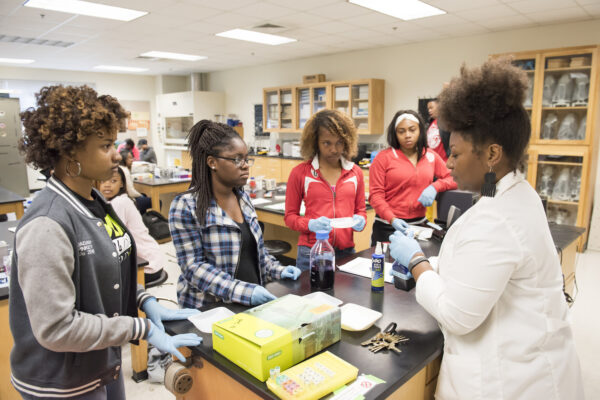New Report Highlights Black Students’ Experiences and Challenges in Completing a College Degree or Certificate
Title: Balancing Act: The Tradeoffs and Challenges Facing Black Students in Higher Education
Source: Gallup and Lumina Foundation
Of all racial and ethnic identity groups in the U.S. student population, Black students are the least likely to complete a degree or certificate program within six years, according to the National Student Clearinghouse Research Center (2022). In response, Gallup and the Lumina Foundation developed a report on the systemic and institutional challenges Black students face in their pursuit of higher education, drawing from data collected for the Lumina Foundation-Gallup 2023 State of Higher Education study.
Based on fall 2022 survey responses from 12,015 adults and supplemental interviews with 6,008 currently enrolled students, Gallup and Lumina found Black students’ completion rates are linked to experiencing discrimination and competing priorities while pursuing higher education.
According to the report, Black students are more likely to face discrimination in higher education than other students, with 21 percent of Black students reporting they frequently or occasionally experience discrimination, compared to 15 percent of other students.
Black students attending less racially diverse institutions are even more likely to feel discriminated against, physically and psychologically unsafe, and disrespected. For example, 31 percent of Black students who attend the least diverse institutions according to the Simpson racial diversity index report experiencing frequent or occasional discrimination. Twenty-eight percent of these students feel physically unsafe, 27 percent feel psychologically unsafe, and 26 percent feel disrespected.
Black students enrolled in certificate/certification programs more often experience some form of discrimination (32 percent) than students enrolled in associate degree (16 percent) or bachelor’s degree programs (14 percent). Similarly, Black students are more likely to experience discrimination at for-profit institutions (34 percent), compared to private not-for-profit institutions (23 percent) and public institutions (17 percent).
Greater distinctions in priorities, roles, and responsibilities exist between Black students and other students enrolled in bachelor’s degree programs than students enrolled in associate degree or certificate/certification programs, according to the report. Black students in bachelor’s degree programs are twice as likely as other bachelor’s degree students to be caregivers or full-time workers. Black students in associate degree and certificate/certification programs are equally as likely as other students to have external responsibilities.
Based on these findings, Gallup and Lumina recommend institutions integrate in-person and online course options and provide accessible counseling services focused on students’ time-management, basic needs security, and stress management to support Black students’ completion.
To read the full report, click here.
—Alyssa Stefanese Yates
If you have any questions or comments about this blog post, please contact us.
